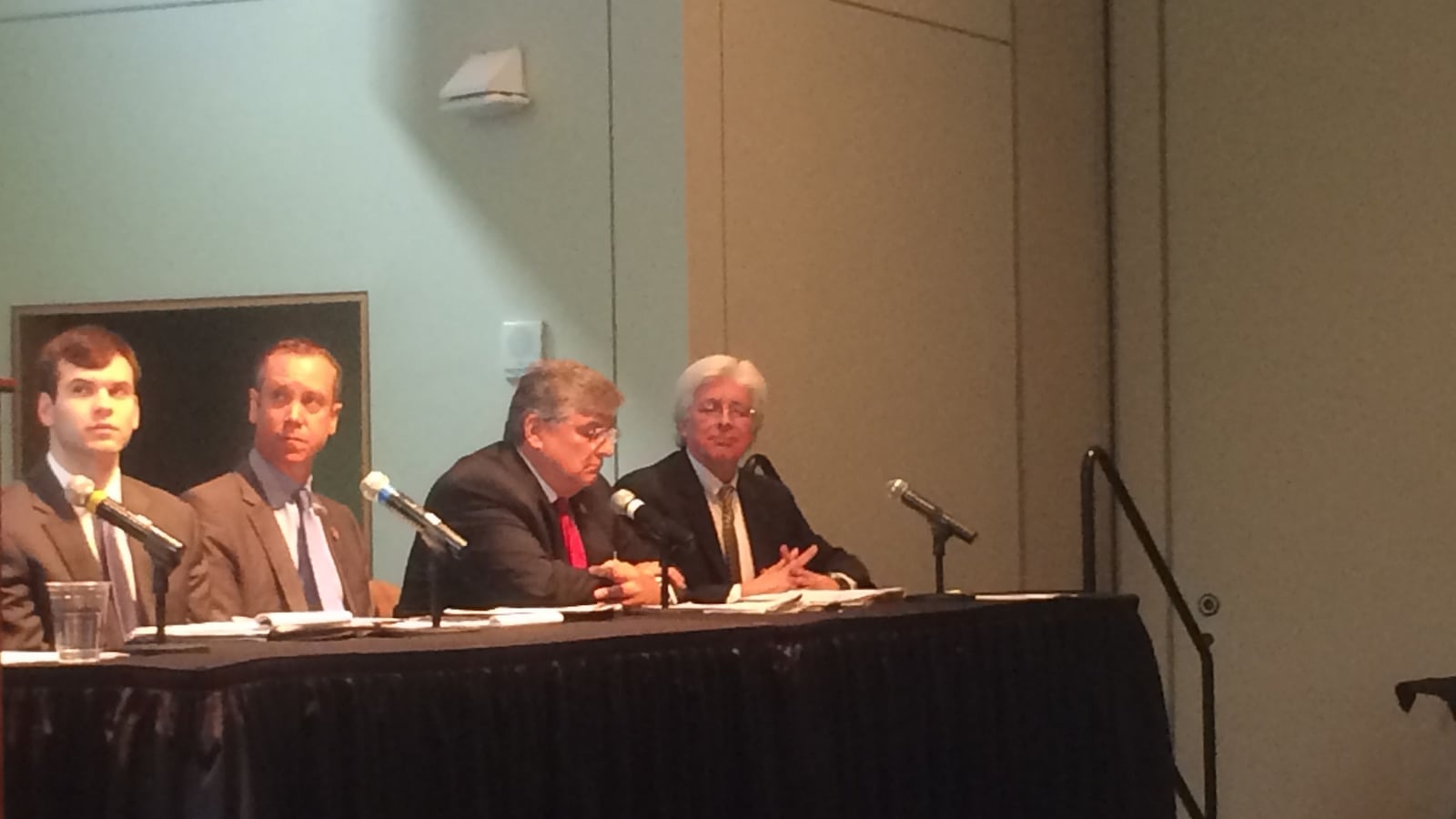Tennessee leaders highlighted an array of state initiatives focused on marrying education and industry at a conference at Vanderbilt University on Thursday.
The conference was a meeting of the Pathways to Prosperity network, a consortium of nine states committed to increasing the number of high school graduates that have the skill set for a career or further education.
That same goal has been the backbone of Gov. Haslam’s time in office so far. Since he was elected in 2010, he has spearheaded the Tennessee Promise, which allows Tennessee high school graduates to attend two years of community college for free; the Drive to 55 initiative, which aims to have 55 percent of Tennessee workers hold postsecondary credentials; and Tennessee Pathways, an outgrowth of the network, which convenes conversations between education officials and industrial managers. Haslam has also been a vocal proponent of raising K-12 standards, which he says is necessary for college and career readiness. Underlying all of these initiatives is an effort to align K-12 education with post-graduation employment, so students graduate with skills that are needed to bolster the state economy.
Gov. Haslam, Mike Krause, the leader of Drive to 55 and Tennessee Promise, Sen. Mark Norris, the Senate majority leader in the state general assembly, and Education Commissioner Kevin Huffman were among the officials at the conference to share their successes and setbacks with leaders from other states.
Haslam highlighted all of the initiatives in a speech before a panel opened up that allowed leaders to go more in-depth about the programs.
“I am more encouraged than ever about Tennessee and education,” Haslam said.
Krause spoke about a program called Seamless Alignment and Integrated Learning Support, or SAILS. SAILS is a joint effort of the department of education and community colleges to help seniors in high school with low ACT scores catch up in math before they graduate, so they do not have to take remedial courses in community college. Of 8,400 seniors who participated in the program statewide, 88 percent were able to skip at least one semester of remedial math in community college, and 68 percent were able to enter community college without any remediation.
“I want to emphasize that these are students who, eight months before, scored below a 19 [out of 36] on the ACT,” Krause said. “To have them fully math-remediation complete within a nine-month period is a testament to the instructional model, and more than anything, the power of momentum, and telling a student their senior year, ‘you can get ahead,’ rather than telling them in college, ‘you’re behind.'”
“We’re declaring war on math remediation,” he concluded.
Huffman described how the department of education has decentralized its resources, staffing regional offices more heavily than the central office, so education officials can be more in touch with local industries.
But Huffman’s optimism was infused with caution. He repeatedly reminded conference attendees that the state still has room for improvement, noting that ACT scores in the state last year were much lower than desired. “Tennessee still has a long way to go,” he said.


